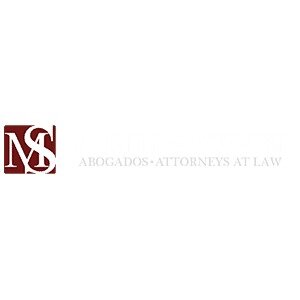Best Structured Finance Lawyers in Dominican Republic
Share your needs with us, get contacted by law firms.
Free. Takes 2 min.
Or refine your search by selecting a city:
List of the best lawyers in Dominican Republic
About Structured Finance Law in Dominican Republic
Structured finance in the Dominican Republic refers to sophisticated financial transactions that involve pooling, repackaging, and transferring financial assets to create new securities. These transactions typically include securitization of loan portfolios, syndicated loans, project finance, and asset-backed securities. Due to the evolving financial market landscape, structured finance has become integral for businesses seeking alternative funding sources, risk management tools, and tailored financial solutions. The legal framework ensures transparency, protection for investors, and the proper functioning of capital markets within the country.
Why You May Need a Lawyer
In the context of structured finance, legal advice is critical for several reasons. Here are common situations where seeking legal help is necessary:
- Structuring and negotiating complex financial products such as collateralized debt obligations or asset-backed securities.
- Ensuring compliance with local securities regulations and tax laws.
- Drafting and reviewing transaction documents, including trust agreements, prospectuses, and loan documentation.
- Navigating cross-border transactions that require coordination with international legal frameworks.
- Addressing disputes or claims arising from structured finance products.
- Protecting the interests of investors, originators, trustees, and other stakeholders.
- Advising on regulatory risks and the impact of new financial regulations.
A lawyer specializing in structured finance can anticipate potential issues, mitigate risks, and facilitate successful financial transactions.
Local Laws Overview
In the Dominican Republic, structured finance is governed by a combination of financial, securities, and banking regulations. The key legal aspects include:
- Superintendency of Securities Law (Law 19-00): Regulates public offerings of securities, disclosure requirements, and the supervision of securities markets.
- Trust Law (Law 189-11): Provides the legal framework for establishing and operating trusts (fideicomisos), a common vehicle for asset securitization.
- Banking and Financial Intermediation Law (Law 183-02): Sets the rules for financial institutions, including provisions pertinent to syndicated loans and project financing.
- Tax Code Provisions: Structured finance transactions often have significant tax implications, requiring careful structuring to ensure tax efficiency.
- Anti-money Laundering Regulations: All financial transactions must comply with anti-money laundering (AML) laws to prevent illicit financial activities.
- Cross-border Transaction Regulations: International transactions must adhere to foreign exchange controls and reporting obligations.
These legal pillars provide a foundation for structured finance activity, aiming for market stability and protection for all parties involved.
Frequently Asked Questions
What is structured finance?
Structured finance is a segment of finance involving complex financial instruments designed to help organizations meet funding needs, manage risk, or create investment opportunities.
What types of assets can be securitized in the Dominican Republic?
A variety of assets can be securitized, including mortgages, consumer loans, commercial loans, receivables, and infrastructure assets, subject to legal requirements.
What is a fideicomiso (trust) and why is it important in structured finance?
A fideicomiso is a trust used to pool assets for securitization or project finance. It ensures separation of assets and provides legal certainty for investors and other stakeholders.
Do I need regulatory approval for a structured finance transaction?
Yes. Transactions involving securities require approval and registration with the Superintendency of Securities. Other transactions may also require notification to regulatory bodies.
Who can participate in structured finance deals in the Dominican Republic?
Banks, financial institutions, corporations, institutional investors, and government entities can all participate, provided they comply with local laws and regulations.
How are structured finance transactions typically taxed?
Tax treatment varies based on the transaction structure. Some structured products may be tax-efficient if properly structured, but advice from a qualified lawyer or tax advisor is essential.
Are there specific disclosure requirements?
Yes. Public offerings and private placements must meet strict disclosure standards to ensure transparency and protect investors.
Can foreign companies engage in structured finance in the Dominican Republic?
Foreign entities can participate in structured finance transactions, often through local subsidiaries or cross-border structures, subject to additional regulatory and reporting obligations.
What are the main risks in structured finance?
Risks include asset performance risk, legal and regulatory changes, market volatility, and counterparty risk. Thorough legal review helps mitigate these risks.
How do I find a lawyer specializing in structured finance?
Look for law firms or attorneys with expertise in banking, finance, and securities law, ideally with a track record in structured finance transactions in the Dominican Republic.
Additional Resources
The following resources can provide further information and assistance related to structured finance in the Dominican Republic:
- Superintendency of Securities (Superintendencia del Mercado de Valores): Regulates securities offerings and monitors capital markets activity.
- Superintendency of Banks (Superintendencia de Bancos): Supervises banks and financial institutions involved in structured finance deals.
- Ministry of Finance (Ministerio de Hacienda): Provides updates on fiscal policy and regulations affecting financial transactions.
- Dominican Association of Trusts (Asociación Dominicana de Fideicomisos): Offers industry insights and educational materials about trusts and securitization.
- International law and accounting firms: Often publish guides about structured finance and regulatory updates in the Dominican Republic.
Next Steps
If you are considering a structured finance transaction or require assistance navigating the legal landscape, follow these steps:
- Clearly define your objectives and gather relevant documentation about your assets or planned transactions.
- Seek an initial consultation with a lawyer or law firm specializing in structured finance within the Dominican Republic.
- Ask about their experience, fees, and approach to handling structured finance matters.
- Review any legal opinions, memorandums, or guidance provided to ensure your understanding of the legal environment and transaction risks.
- Stay informed about regulatory developments that could impact your transaction.
Legal expertise is essential to effectively structure, document, and complete a successful structured finance transaction in the Dominican Republic. Taking proactive steps with professional guidance helps ensure compliance, manage risk, and achieve your financial goals.
Lawzana helps you find the best lawyers and law firms in Dominican Republic through a curated and pre-screened list of qualified legal professionals. Our platform offers rankings and detailed profiles of attorneys and law firms, allowing you to compare based on practice areas, including Structured Finance, experience, and client feedback.
Each profile includes a description of the firm's areas of practice, client reviews, team members and partners, year of establishment, spoken languages, office locations, contact information, social media presence, and any published articles or resources. Most firms on our platform speak English and are experienced in both local and international legal matters.
Get a quote from top-rated law firms in Dominican Republic — quickly, securely, and without unnecessary hassle.
Disclaimer:
The information provided on this page is for general informational purposes only and does not constitute legal advice. While we strive to ensure the accuracy and relevance of the content, legal information may change over time, and interpretations of the law can vary. You should always consult with a qualified legal professional for advice specific to your situation.
We disclaim all liability for actions taken or not taken based on the content of this page. If you believe any information is incorrect or outdated, please contact us, and we will review and update it where appropriate.
Browse structured finance law firms by city in Dominican Republic
Refine your search by selecting a city.













